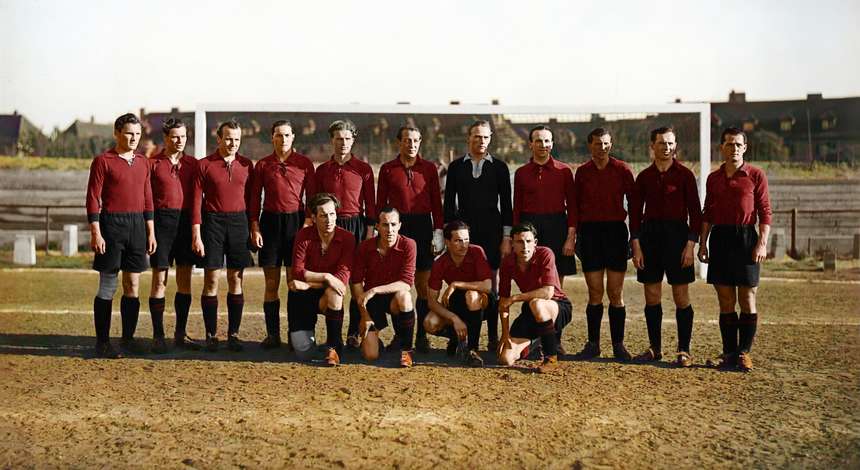
The two rivals played their first match on 8 May 1949 in front of 22,000 spectators at the Cologne racecourse in Müngersdorf. Some 5,000 Leverkusen fans accompanied our team and were equipped with black and red flags beforehand. Departure was at 12 noon in front of Leverkusen town hall in trams of 300 directly to the stadium in Cologne.
A flyer called on the away supporters to shake the opponent's confidence with the chant-like battle cry "Leeee-ver-kuuuu-sen". Unfortunately, this was not as successful as hoped. Relatively defenceless, probably also overawed by the large crowd, the Werkself lost 2-0 and were not in a good position for the second leg. Richard Job, in particular, fell far short of his usual performances after finally recovering from a knee injury. The club management accused him of having contacts with FC Köln and handed him an internal suspension.
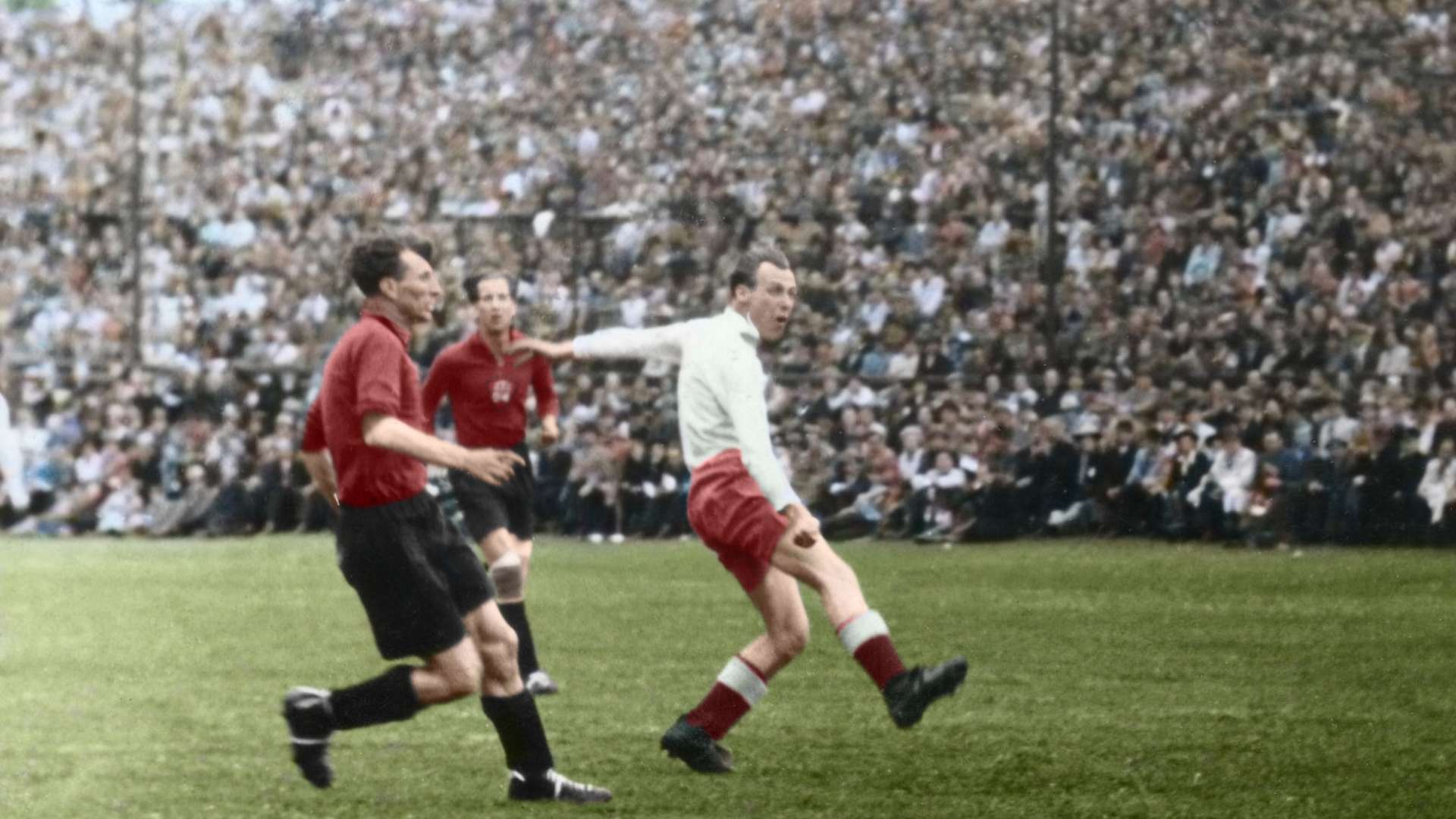

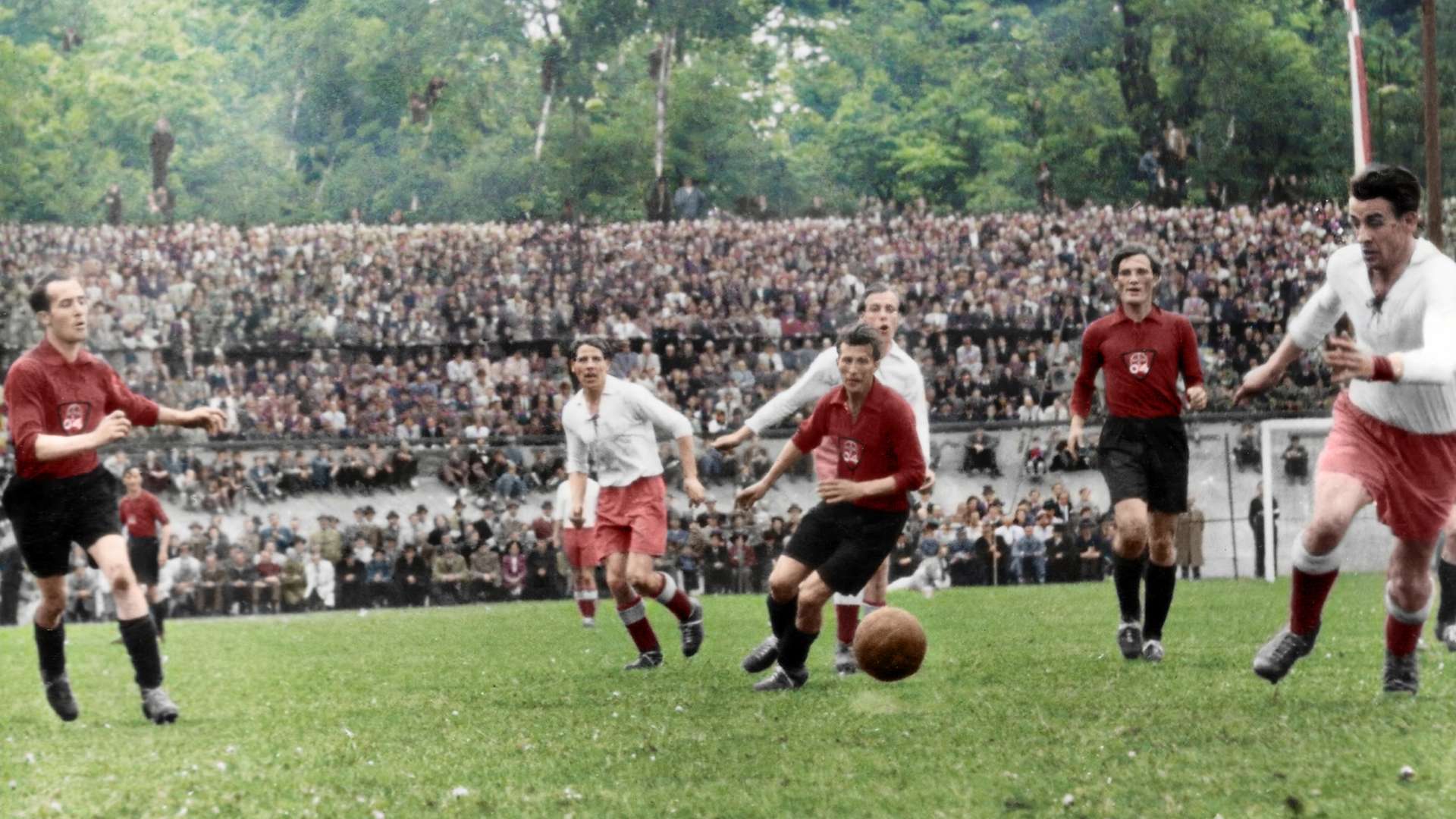
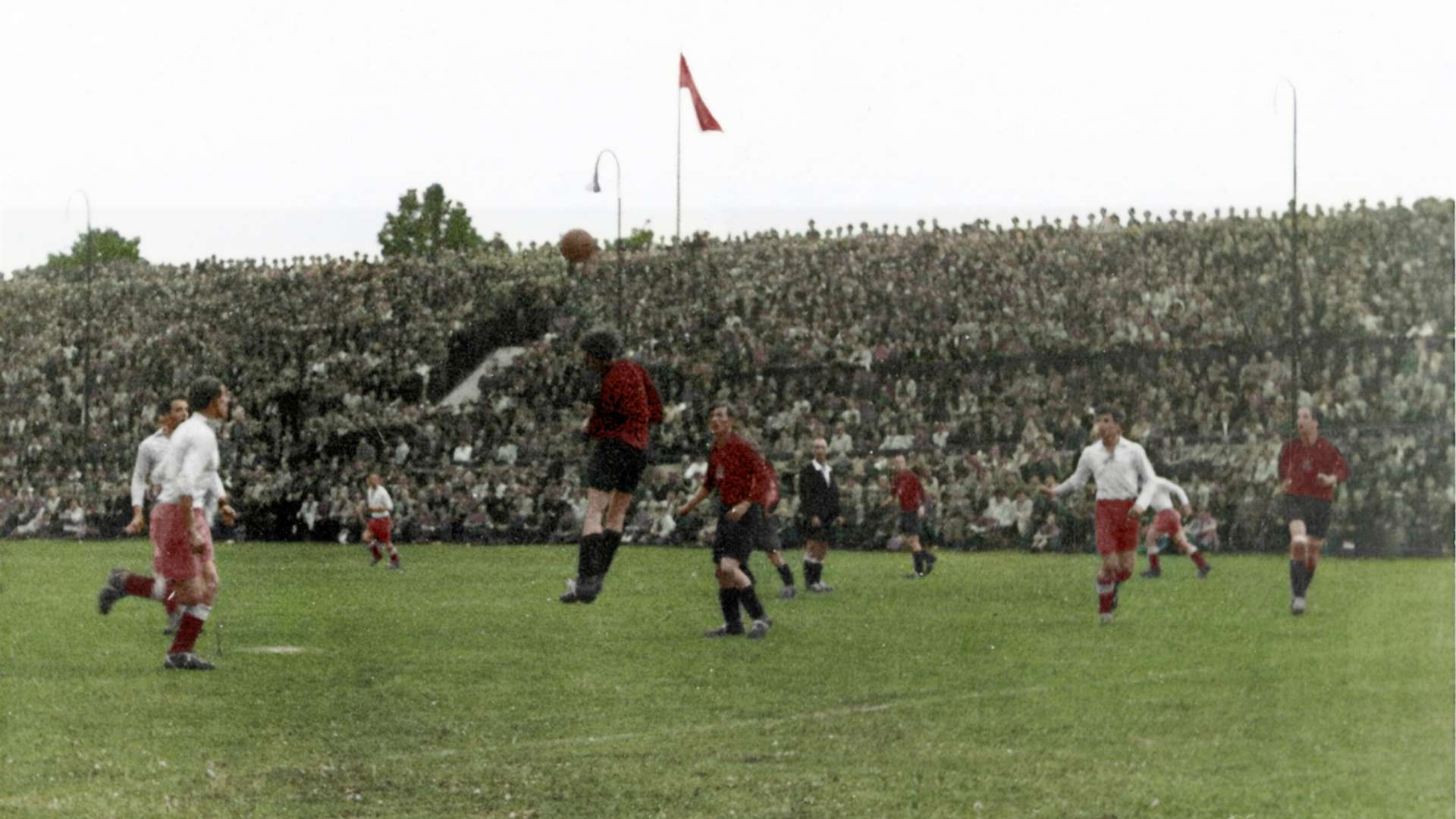
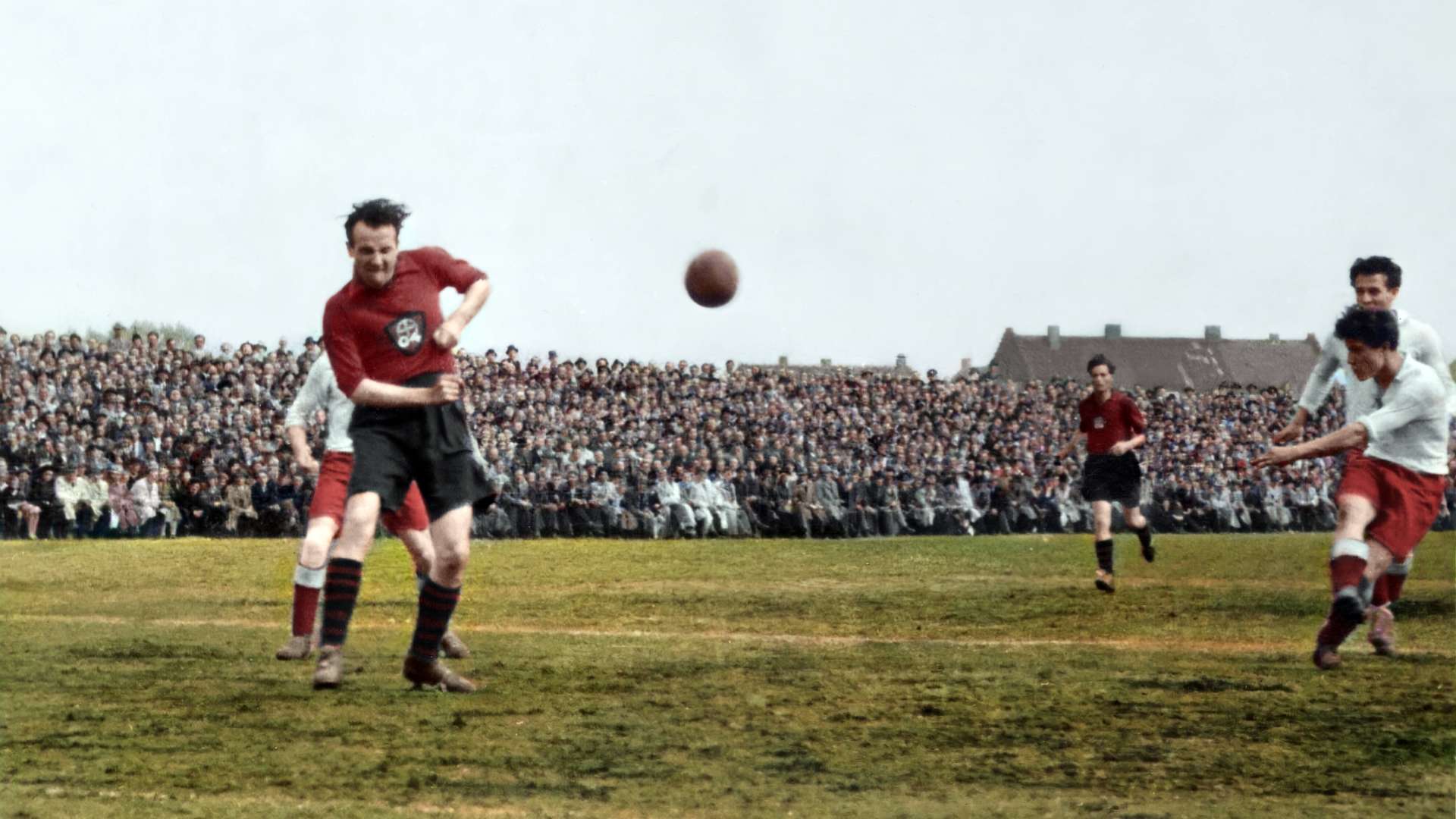
Bayer 04 were giving up their best player, and neither the objections of his teammates nor those of many fans made the club management understand this. Job himself stayed out of the discussions but told a newspaper: "All the accusations made against me and the rumours about my possible transfer to FC Köln have no basis. There have been offers from all parts of Germany for years. But I will hardly be the only one. I didn't even hint in the statement I was accused of making before the Köln game that this would be my last game for Bayer, so I have to reject the accusation of the Leverkusen club's decision of gross unsportsmanlike conduct and behaviour detrimental to the team in the strongest possible terms." So he didn’t play and actually left our club after the second leg, moving to Voiswinkel for a year.
The second leg took place on 15 May 1949 in front of a crowd of 14,000 at the Stadtpark, which had previously been considered impossible. In the first half, Bayer put up a fierce fight accompanied by deafening cheers from the Leverkusen youth. The teams changed ends at 1-1, but unfortunately there was not enough energy left in the second half. FC Köln went up to the Oberliga West with a 3-1 victory.
Related News

Legend: Christoph Daum - The man who taught us to want
Christoph Daum was born on 24 October 1953 in Zwickau. As a child, he moved to West Germany with his mother and grew up in Duisburg. He developed a great enthusiasm for football at an early age, even though it soon became clear that his future lay less on the pitch than on the sidelines. Even at a young age, his passion for analysing, explaining and improving things became apparent.
Show more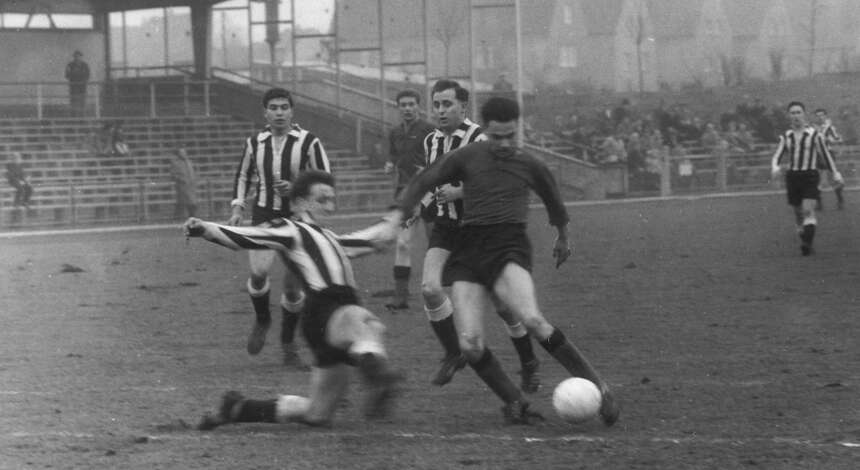
From the archives: 65 years ago - Another victory at last
When the Bayer 04 players celebrated Christmas in 1960, they spent the winter in second place in the Oberliga West 2 on 20 points - but already five points behind leaders Schwarz-Weiß Essen. However, coach Erich Garske's team are struggling to get back on track in the new year. A goalless draw against Bonner FV at home at the Ulrich Haberland Stadium was followed by a 2-1 away defeat in Erkenschwick. The following home game also yielded just one point. As a result, the team's promotion ambitions dwindled to a minimum, as the gap to the coveted spot has now grown to a challenging ten points.
Show more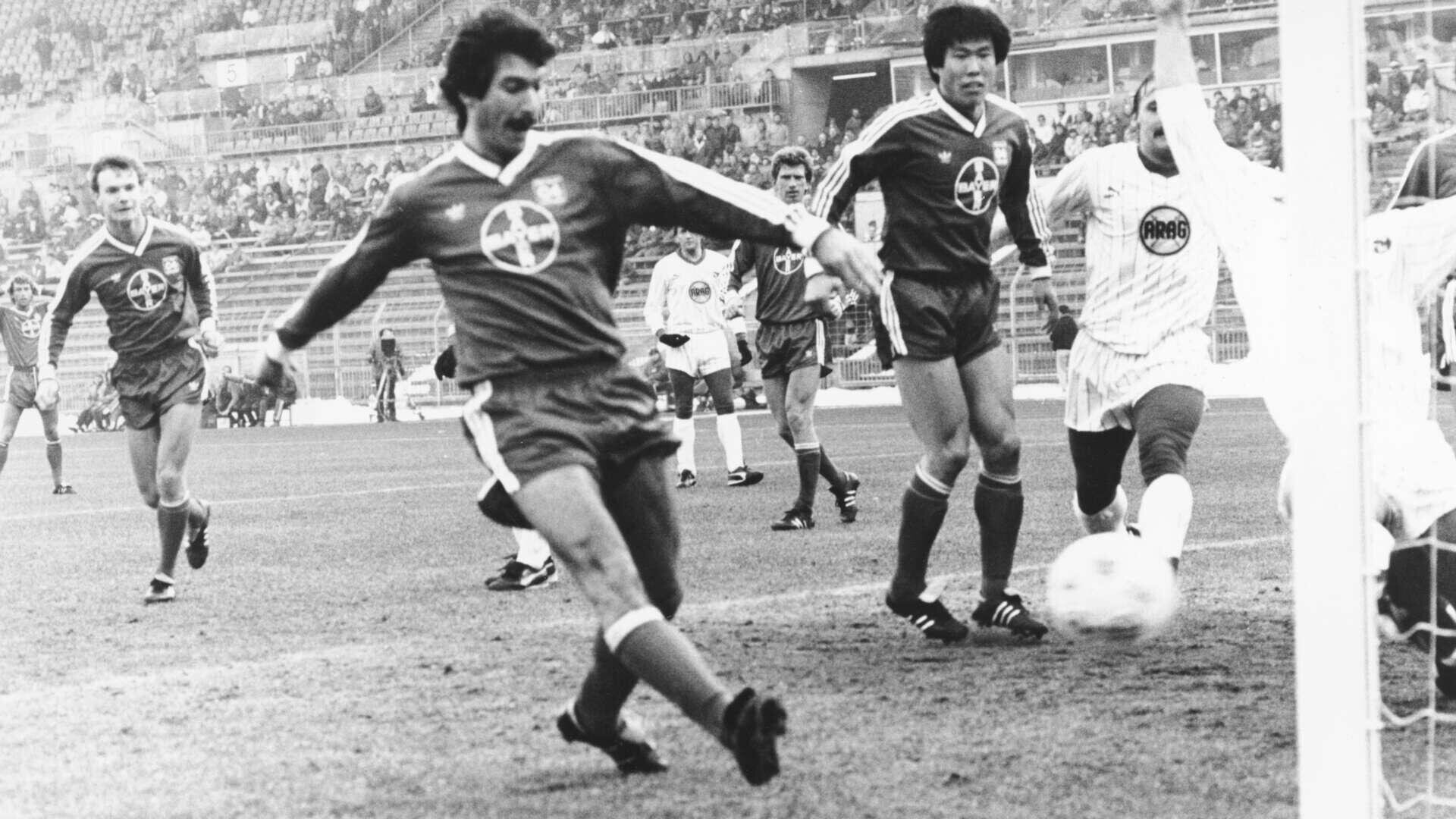
Goals of the month: From Waas to Tapsoba
In this video you can see impressive and important goals in Bayer 04 history from the month of February. It's not always about the beauty of the goals, but also a reminder of special games and players.
Show more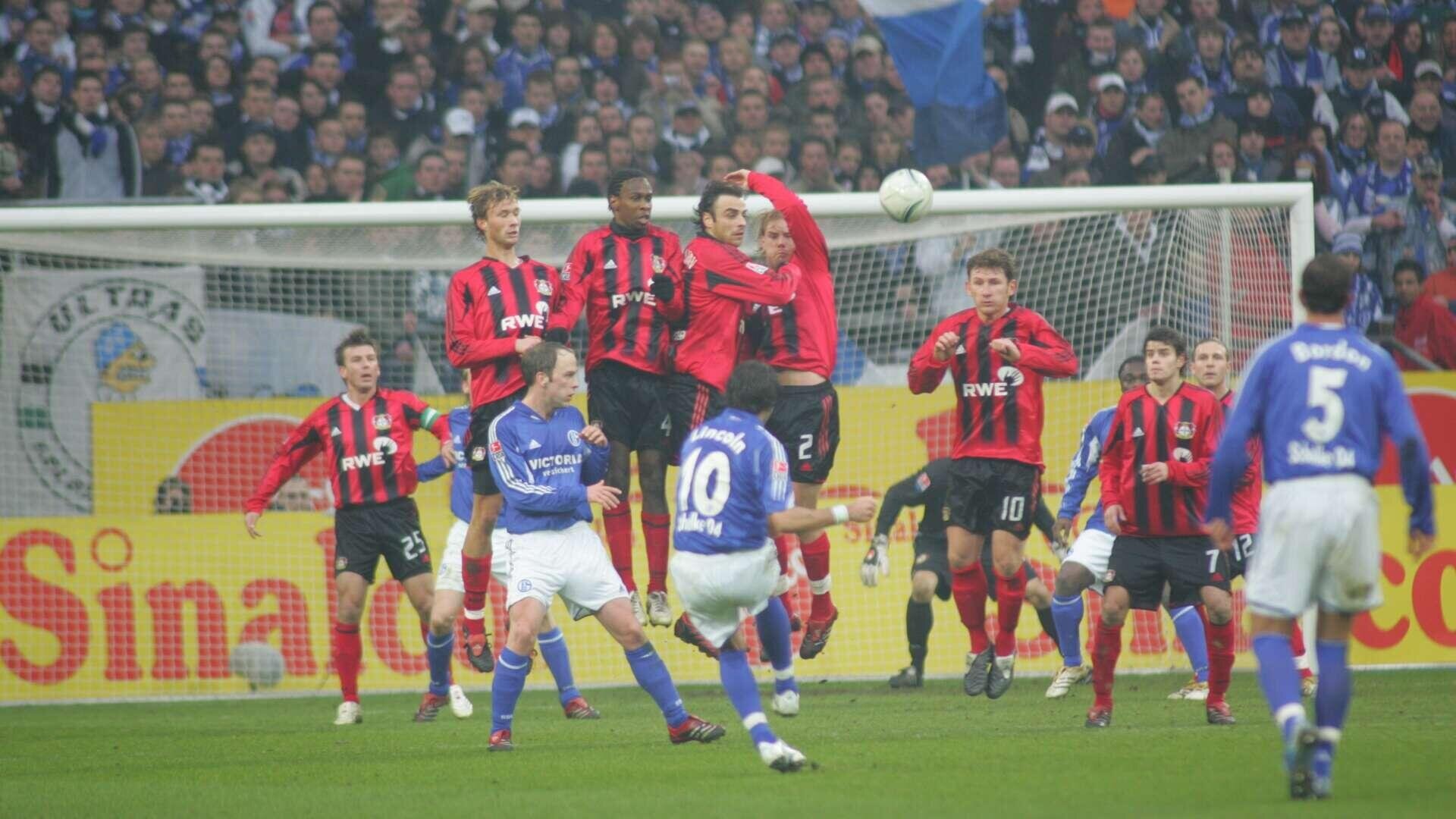
Match of the month: 20 years ago - A game of goals galore
It is 11 February 2006 and Schalke 04 and the Werkself kick off at 3.30 p.m. in a match that ends up being historic - at least from a Bayer 04 perspective.
Show more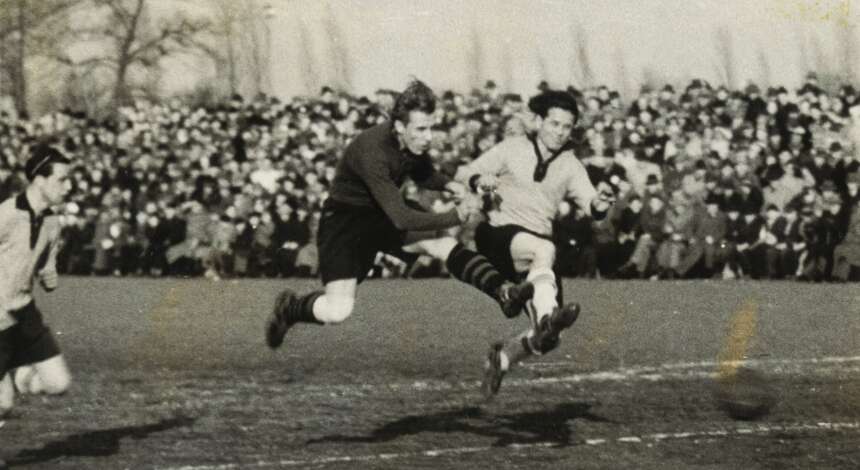
History: 75 years ago - The 1950/51 season (February)
As league leaders, the Werkself welcomed the relegation-threatened team from Rhenania Würselen. On 4 February 1951, 5,000 spectators line the touchlines despite the Sunday carnival parades. And they see a home team that is superior on the pitch. Without Theo Kirchberg, who was ill, and Emil Becks, who was suspended, the hosts attacked the opposing goal from the start. Battling against a strong wind in the first half, Bayer 04 created chance after chance, but were repeatedly thwarted by the Würselen goalkeeper. With the score at 0-0 at half-time, Karl Heinz Spikofski tried his luck on 55 minutes and hammered the ball into the opposition net from 20 metres out. Rhenania can no longer counterattack. The siege of the Würselen penalty area continued right to the end, but the game ended in a narrow 1-0 win.
Show more